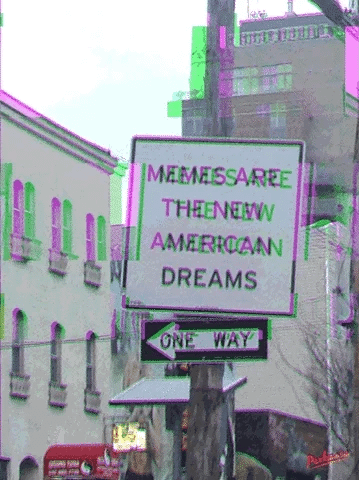What is true happiness, really? 🤷🏻♀️
How many falls from grace helped me see that money ain't it
Contemplations
How do you define true happiness?
What practices are you putting into place to move towards that state of being?
***
It’s about that time of the month where I am revisiting the Five Mindfulness Trainings (5MT).
In case you aren’t familiar, the 5MTs is an adaptation of the Five Precepts in the Plum Village tradition of Buddhism. The Five Precepts are basically the vows, or moral code, for Buddhist practitioners. Zen Master Thich Nhat Hanh (Thấy, meaning teacher in Vietnamese and what the community lovingly calls him) updated this into an ethics framework that is both specific and broad enough to guide any practitioner to try to live a life where harm is minimized. Though I recognize that when I say Code of Ethics that can be alienating to many folks, especially those with religious trauma.
When I first took the 5MTs, I was a bit swept up in the magic of it all. It was at the end of a retreat and I was feeling incredibly connected to the practice and the Plum Village community and wanted to go deeper. But it wasn’t until last year when I renewed my vows that I really took stock of what my relationship was with all of the different trainings and began adjusting my life to them.
Natural questions came up in my small group where we went through each training: How vegetarian are we talking about? Can we not kill bugs? What if we have an infestation? When you say long-term commitment, what do you mean exactly?
As I looked at how I could practice each of the trainings, I noticed where I was resistant and tried to dig more deeply to understand why it was arising.
What was I holding onto? What was I grasping at? What was I afraid of?
For me, some of the trainings came more easily than others. As we all continued to express our trepidation, the Brother and the other monastics emphasized to us that these were all aspirations, not rules, and we all breathed a sigh of relief. That reframing suddenly made the 5MTs feel freeing, open, spacious instead of oppressive.
Recently, a good friend of mine asked me what the 5MTs were and I couldn’t seem to remember the second training. Ironically, I was a bit frustrated with myself when I realized the one I couldn’t remember was “True Happiness.”
Not to Be All Buddhist About It, But…
True Happiness
Aware of the suffering caused by exploitation, social injustice, stealing, and oppression, I am committed to practicing generosity in my thinking, speaking, and acting. I am determined not to steal and not to possess anything that should belong to others; and I will share my time, energy, and material resources with those who are in need. I will practice looking deeply to see that the happiness and suffering of others are not separate from my own happiness and suffering; that true happiness is not possible without understanding and compassion; and that running after wealth, fame, power and sensual pleasures can bring much suffering and despair. I am aware that happiness depends on my mental attitude and not on external conditions, and that I can live happily in the present moment simply by remembering that I already have more than enough conditions to be happy. I am committed to practicing Right Livelihood so that I can help reduce the suffering of living beings on Earth and stop contributing to climate change.
For those of you who know me well and have followed my work for the past few years, you know that social justice and speaking up against oppression is something that is integral to my life these days. Both in my writing and also the way in which I share mindfulness and through the beautiful work we do at Joyful Liberation Collective (the non-profit I started five years ago).
I’m a bit obsessed by how oppression lives in our body and consciousness because I want to rid myself of it so badly. So perhaps in the past, I wrote this training off, thinking I already checked off this box in other ways and that I had bigger fish to fry — like looking at my mindful consumption patterns.
I remember the first time I read this training and the one line that stuck out to me was “true happiness is not possible without understanding and compassion; and that running after wealth, fame, power and sensual pleasures can bring much suffering and despair.”
This resonates deeply with me as someone who has gone through this hard journey of unlearning that money does not buy happiness or love, no matter how much you want it to.

It’s hard to really take this in though, as an American, a first-gen kid, the American Dream has been planted in me. Yes, that comes with the idea of believing in possibilities and opportunities but it also comes with the narrative that if you work hard enough, you’ll get everything you want or need in life. As someone who was an overachiever (maybe still a little bit), this grind of working towards a great ideal, of capitalism has been deeply ingrained in me for as long as I can remember. (I wrote about how hard it is for me to rest in a previous post that touches on this more.) It’s taken many falls from grace through the years to realize that money, “success”, my career isn’t everything and in fact, that joy and liberation is possible in the here and now.
As I continue to contemplate the Second Mindfulness Training, the line that is calling to me right now is “I will share my time, energy, and material resources with those who are in need.” As someone who is deeply called to be of service, this comes naturally to me but how it is expressed in practice, with boundaries, and with whom is still something I am sort through.
For me, this is a deeper invitation to see where the line is between generosity and communal resources; when is sharing too little, just enough, or too much; and how do I define someone who is in need? I wrote about this a few week ago in that same rest post, when I touched on habit energy and how my particular habit is to fix, or to come from a place of knowing — superiority, at times. This is what I’ll be sitting with.
So I’d love to know:
What in the Second Mindfulness Training is calling for you to look more deeply?
How do you define true happiness?
What practices are you putting into place to move towards that state of being?





The aspirations vs rules concept is so soothing. True happiness is something I struggle with during times of deep mourning which I find myself wondering if happiness is possible in moments of discomfort and disparity. When I dig deep and allow myself to feel joy, to smile in the midst of heartbreak, I’m reminded that it’s my mind that’s wired for negativity and at any moment I can pull away from the caveman brain and into my practice. I’m actively re-wiring. We all are. I’m so happy to read this blog this morning, it really resonated. Sending big love to you